Introduction to Christopher James Dubey, Psychiatric Survivor
Former psychiatric patient shares their journey through harmful treatments, advocacy work, and future projects to reform mental healthcare and reduce medical harm.
Linktree: https://linktr.ee/chrisjamesdubey
[Caption for images: Fanciful AI-generated illustrations depict breaking chains and medication pills transforming into growing plants, flowers, birds, and butterflies, symbolizing freedom and transformation.]
Affiliate links
invideo AI: Make AI videos
vidIQ: Boost your YouTube videos
Paperpal: AI academic writing tool. Get 20% off all plans with code PAP20
Last updated May 17, 2025
Content note: Discusses suicide attempts, forced psychiatric treatment
Keywords: psychiatric survivors, Mad Pride, antipsychiatry, critical psychiatry, critical psychology, prescribed harm, iatrogenic harm
Watch or listen to a musical AI voiceover reading of this blog post on Substack, Spotify, Apple Podcasts, or YouTube.
Who I Am
I’m Chris Dubey, a longtime mental health patient, psychiatric survivor, mostly quiet introvert, and independent scholar. I was born in 1983 in central Connecticut, USA, where I grew up and still reside. I am disabled, chronically ill, and unemployed as I write this. Occasionally, I am involved with activism to reform mental healthcare and reduce medical harm.
Starting in late spring 2002 with my first dose of paroxetine (Paxil) around the time I turned nineteen, and ending with my last dose of escitalopram (Lexapro) in November 2024 at the age of forty-one, I spent over twenty years as a medicated psychiatric patient. In the mental health system and from its aftereffects, I have endured suffering that is beyond my ability to describe fully. My life was ruined, I became permanently, significantly disabled at the age of twenty-two in 2005 because of misdiagnosed suicide attempts induced by SSRI withdrawal. Shortly afterward, I was declared to have “treatment-resistant” depression, and I was forced by a probate court order to have electroshock (“ECT”).
I remain financially dependent on Social Security disability benefits (SSDI), Supplemental Security Income (SSI), Medicare, Medicaid, subsidized housing, and other government welfare. Additionally, since 2018, I have been living with a neurological disorder called idiopathic intracranial hypertension (IIH), which for me causes a continuous pressure headache, other pain, insomnia, and worsened trouble concentrating. My susceptibility to IIH might have been partly due to the adverse effects of psychiatric drugs and ECT, including weight gain, brain injury, and immune system impairment. However, I don’t have strong evidence to support that possibility and there are many knowledge gaps about IIH.
If you are struggling to recover from iatrogenic harm and/or attempting to escape from the mental health system, I wish you all the best. But if you need words of comfort and are looking for hope, love, light, and positivity, you are in the wrong place and won’t find that here. I appreciate beauty, but I carry much darkness inside of me, though I rarely express it in person. I don’t plan to focus on that darkness in my blog, but it’s a vital part of myself, and sometimes a source of strength. I am not an optimist. I am a cynical realist and somewhat misanthropic.
However, although I’m terrible at math, I have a scientific, analytical mind. I enjoy pondering complexity. This developed partly from a love of nature, doing an associate degree in biotechnology and brief volunteer work as a research assistant in insect ecology labs from 2007-10, learning mindfulness in a DBT program, and following mental health and medical professionals for 10+ years on Twitter/X. I’ve also done several clinical and semi-clinical webinars on antidepressant withdrawal, deprescribing, and peer support. Despite my terrible experiences with mental healthcare, giving me valid reasons to hate psychiatry, I try to avoid black-and-white thinking. I like to consider issues from multiple perspectives, carefully weighing conflicting information before reaching nuanced conclusions or admitting that I lack enough information to form an educated opinion about an issue. I also enjoy reading about and analyzing all kinds of politics, not just the politics of healthcare.
Also, I’m queer. I am biologically male, and I identify as both gay and transgender, but I never went through any form of gender transition. I first came out as both when I was 16 in an article in my high school student newspaper. I own the queer parts of myself, but my sexual orientation and gender identity are now much lesser parts of my life than psychiatric survivor and antipsychiatry issues. For various reasons, currently my involvement in queer culture is limited to other queer people in spaces for psychiatric survivors and people with mental health issues.
My Written Work, Advocacy, and Activism
Despite how much I’ve suffered and how my health issues have so far prevented me from having a career and a normal life, I have had some important impacts as an unpaid activist to reduce psychiatric harm.
I am an unemployed, unpaid member of the Autistic Self Advocacy Network (ASAN), the Citizens Commission on Human Rights (CCHR), the Inner Compass Initiative (ICI), the International Society for Ethical Psychology and Psychiatry (ISEPP), Keep The Promise Coalition (KTP), MindFreedom International (MFI), and the National Survivor User Network (NSUN). I’m also a member of several other online groups for people with experiences of iatrogenic harm, and informally a member/supporter of the Mad Pride and psychiatric survivors movements. I have attended support and training groups by the Wildflower Alliance, Advocacy Unlimited’s Toivo Center for Holistic Healing, and written for and attended presentations by Mad in America. I have written a science fiction novel that features characters who are forced to undergo ECT, self-published in 2013/14 through Andrews UK Limited, previously published in 2009 by Chipmunkapublishing. I have initiated and testified on Connecticut state legislation about the harms caused by ECT, against involuntary ECT, and in support of peer-run respites. In 2017, I got an article published in Ethical Human Psychology and Psychiatry (EHPP), a peer-reviewed journal founded by critical psychiatrist Peter Breggin and his wife, Ginger. The article “Electroconvulsive Therapy and Brain Damage: Survey of the Evidence From a Philosophical Promontory” was cited in an expert witness report by forensic pathologist and neuropathologist Bennet Omalu and was used as evidence in the U.S. District Court case Jeffrey Thelen v. Somatics, LLC and Elektrika, Inc. The case went to jury trial in 2023. I wasn’t directly involved in the litigation and I received no compensation. Circa 2018, I was interviewed (without compensation) for a CCHR documentary about ECT entitled Therapy or Torture: The Truth about Electroshock, which is now free to watch and download. (Short clip here.) I know many psychiatric survivors do not want to be associated with CCHR because of its link to the Church of Scientology, but I long ago made the personal choice to do so, and I don’t regret it. My interactions with CCHR staff have all been positive and mutually beneficial. I’m very grateful for CCHR’s long history of advocacy, and for helping me put my story on record.
In addition to writing and testimony related to mental health, from 2013-18, I was a part-time professional book reviewer for the indie book reviews site IndieReader. Not all my reviews were published or signed with my name.
Potential writing projects I have in mind for the future:
• This one is already in the works. Peer-reviewed article calling for more research into treatments that could be potential alternatives to ECT in cases where medical treatment is deemed necessary, such as catatonia. The preprint is here. I have found a respected medical journal interested in publishing a revised version.
• Commentary on the news coverage of Laura Delano and Inner Compass Initiative, adding some info that was left out of the March 2025 New York Times article. Also, commentary on Laura’s memoir.
• An e-book or PDF file that lists resources for people trying to taper psychiatric drugs and/or seeking alternative mental health providers and treatments.
• A more concise and better-written overview of the evidence that ECT causes brain damage. My previous journal article about this brought up important points and references, but it was sprawling and somewhat disorganized. And I have learned of additional evidence since then.
• A young adult (YA) dark fantasy or paranormal fiction novel that incorporates themes from critical psychiatry and antipsychiatry. I was halfway through a version without the antipsychiatry themes, but I’m interested in rewriting it to touch on psychiatric survivor issues. Though I can’t write prolifically because of my health issues, I still have talent in fiction writing, honed when I was doing my first college major in English with an emphasis in creative writing.
For now, this Substack blog will be free to read. If you would like to support my writing and advocacy, consider donating to my fundraiser on GoFundMe. If you or people you care for struggle with money, please keep your money to take care of yourself and your loved ones. But if you are doing very well financially and feel like donating, I appreciate your help. Please note that any money I receive will reduce my SSI for that month, currently $517.00 monthly in 2025. So, total donations greater than $517 in a single month are needed to offset the reduction. My other welfare benefits like SNAP (“food stamps” benefit) and energy assistance may also be reduced.
Though I’m in my forties now and not in good health, I still dream of making enough money to move into a quieter apartment with more privacy. And maybe someday no longer needing SNAP, Medicaid, and energy assistance.
Note on AI: I will be using assistive and Generative AI to help me with my blog posts and other content. I will put a note on any content that was created with the help of AI. This post was edited with the assistance of Microsoft Word and Grammarly.
If you are in the USA and in mental health crisis or just seeking emotional support by phone or text, and you don’t wish to take the risks of calling 988, here is a list of noncoercive Support Lines Worth Knowing About, courtesy of the Wildflower Alliance in Massachusetts.
Disclaimer & Waiver: By accessing these blog pages, you confirm that you understand and agree to the following. Christopher “Chris” James Dubey is not a medical or mental health professional. None of the writing or the information shared in these blog pages constitutes professional medical advice, medical care, mental healthcare, or counseling. The information in this blog is not intended to diagnose, treat or cure any mental health or medical conditions, nor does it constitute any type of personal advice. You hereby release, waive, acquit and forever discharge Chris, any of Chris’s agents, successors, assigns, personal representatives, executors, heirs and employees from every claim, suit action, demand or right to compensation for damages you may claim to have or that you may have arising out of statements, acts, or omissions in these blog pages. This agreement shall bind your heirs, executors, personal representatives, successors, assigns, and agents.



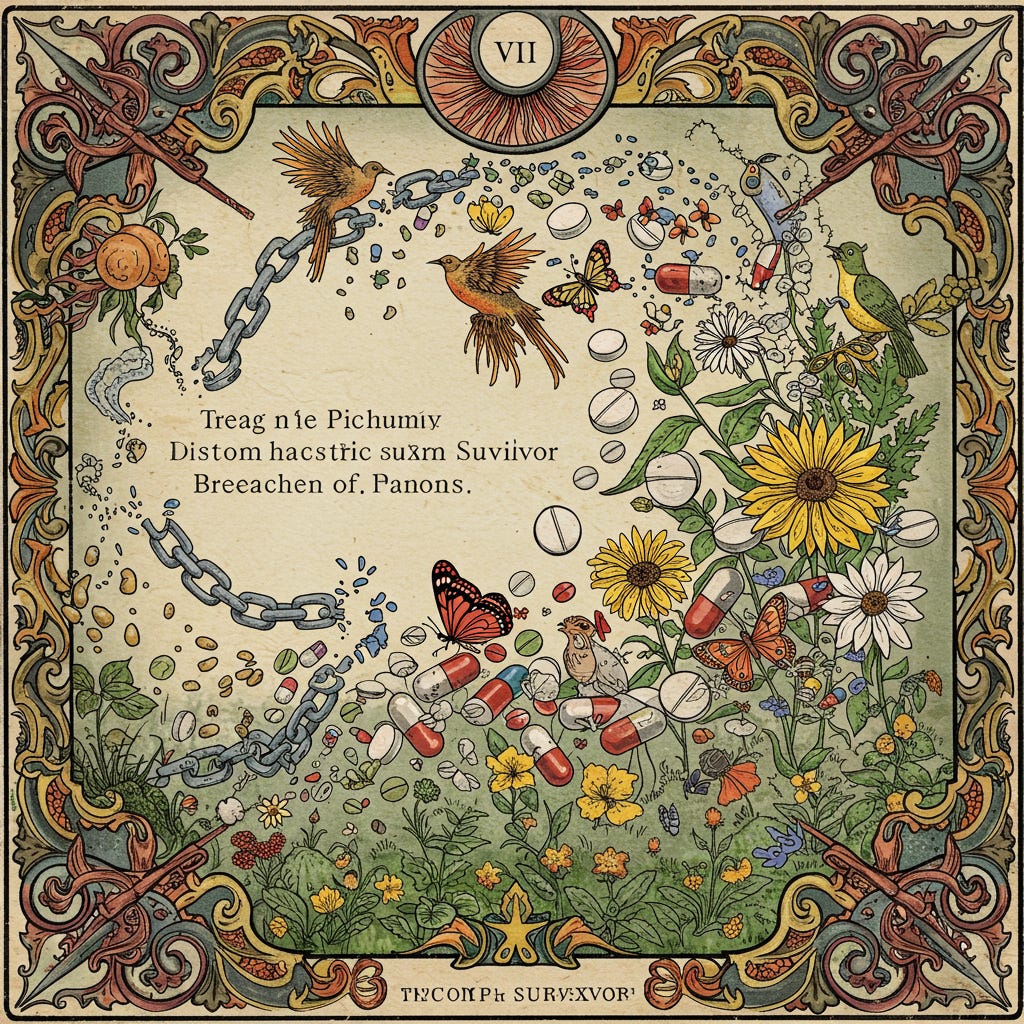
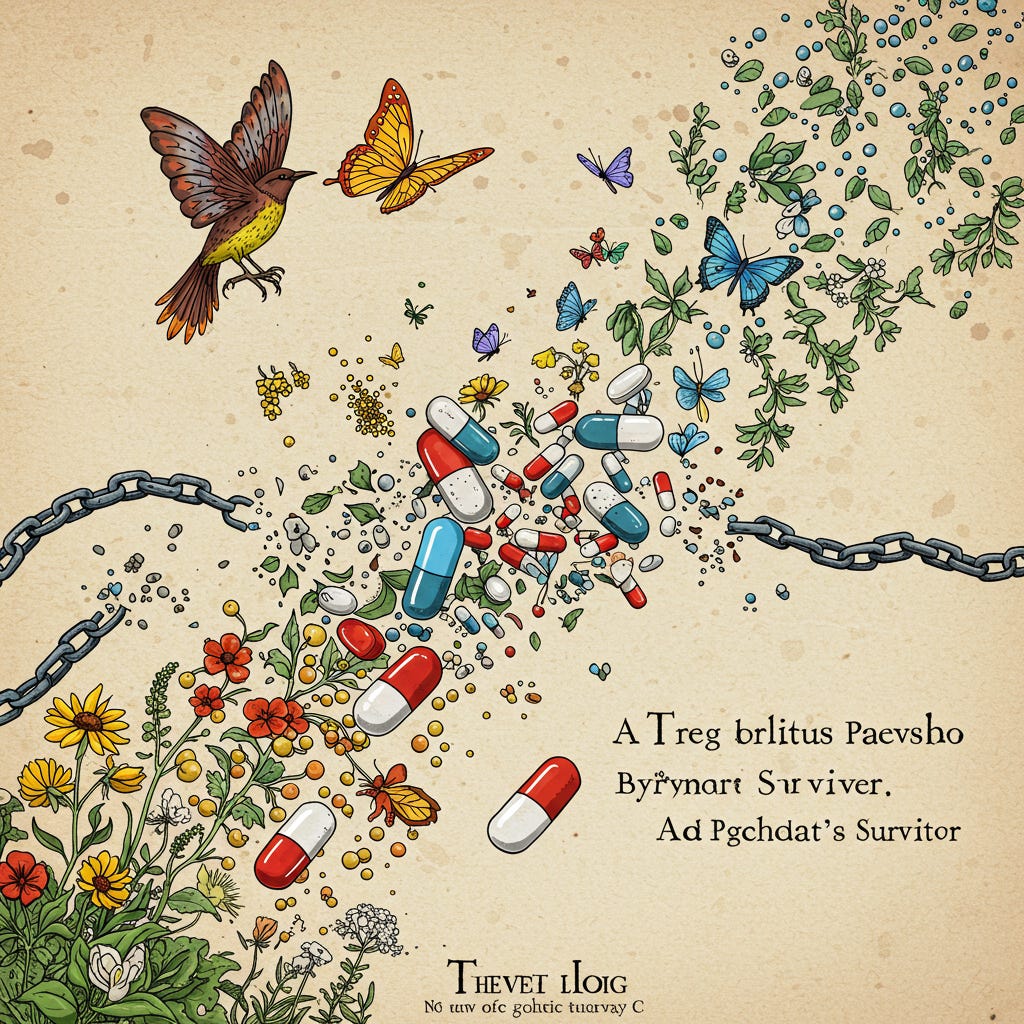
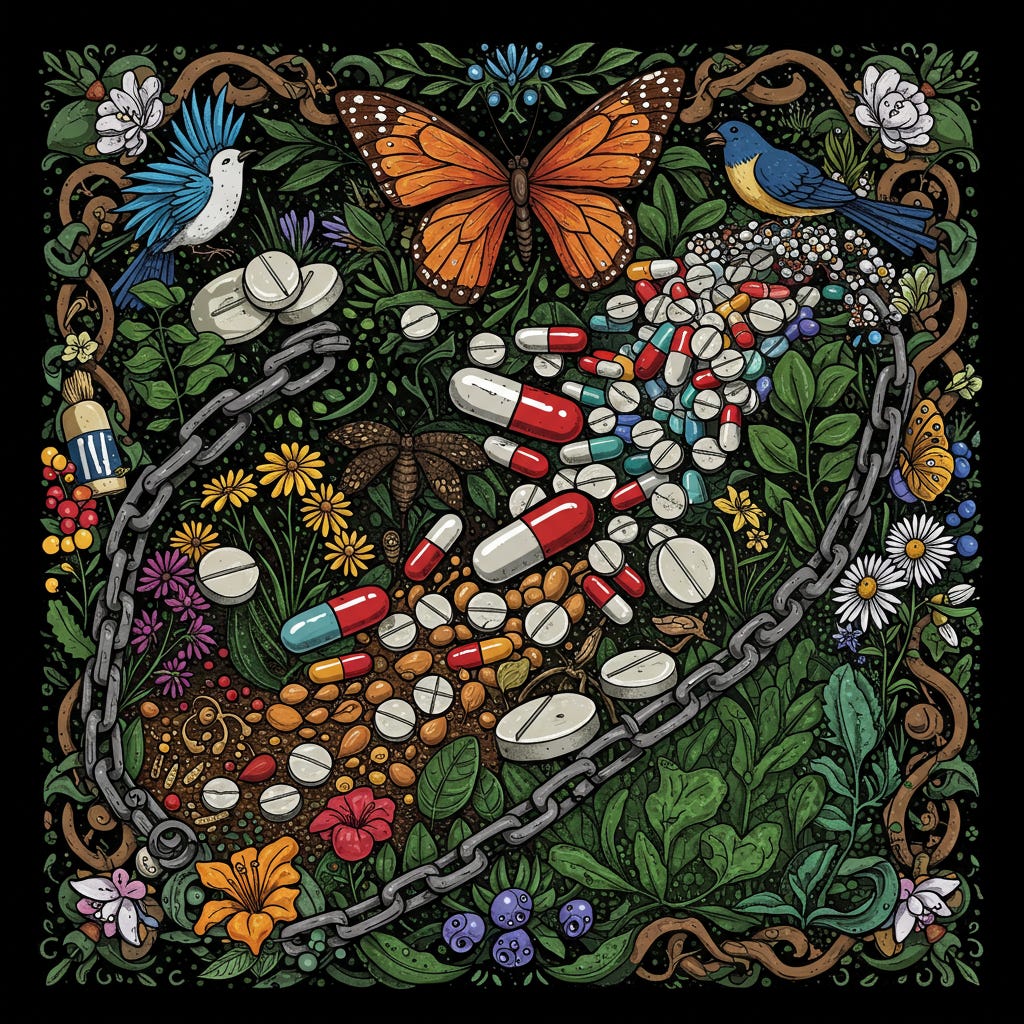
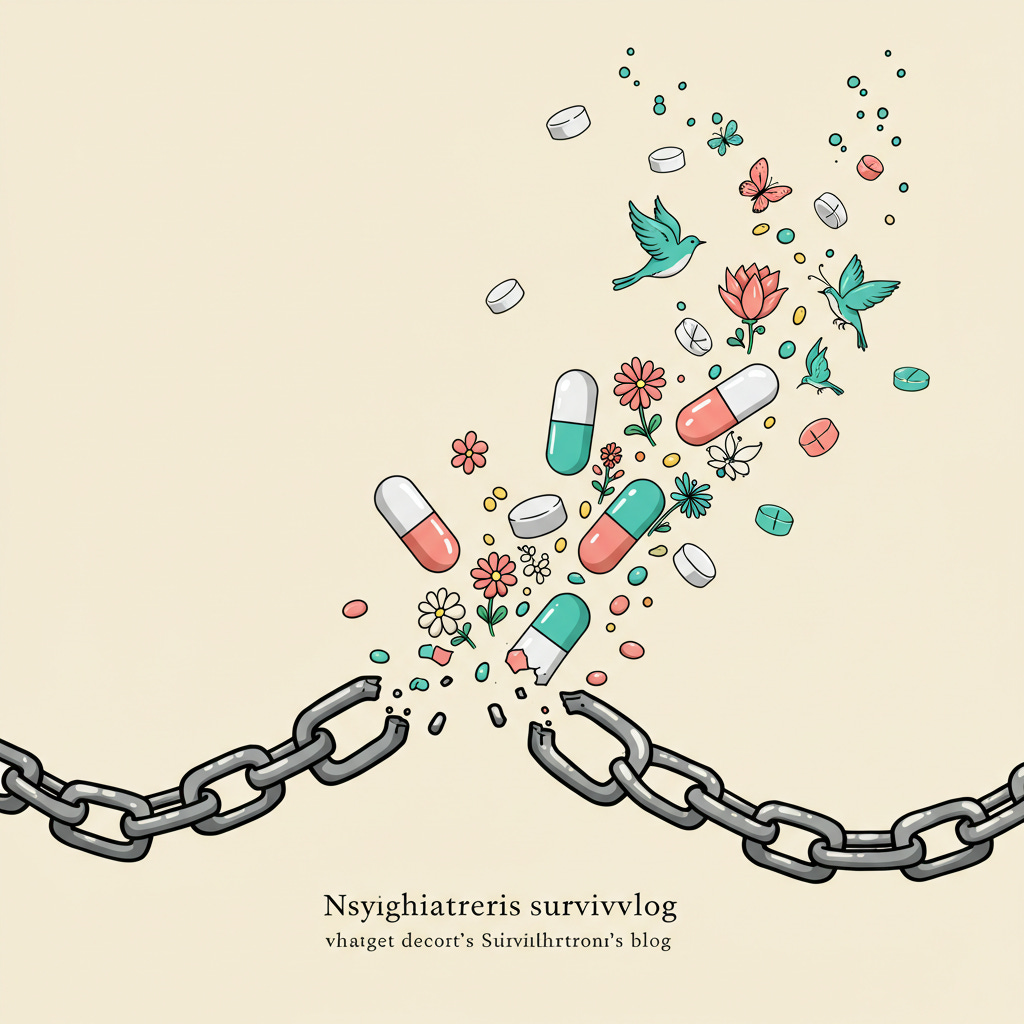
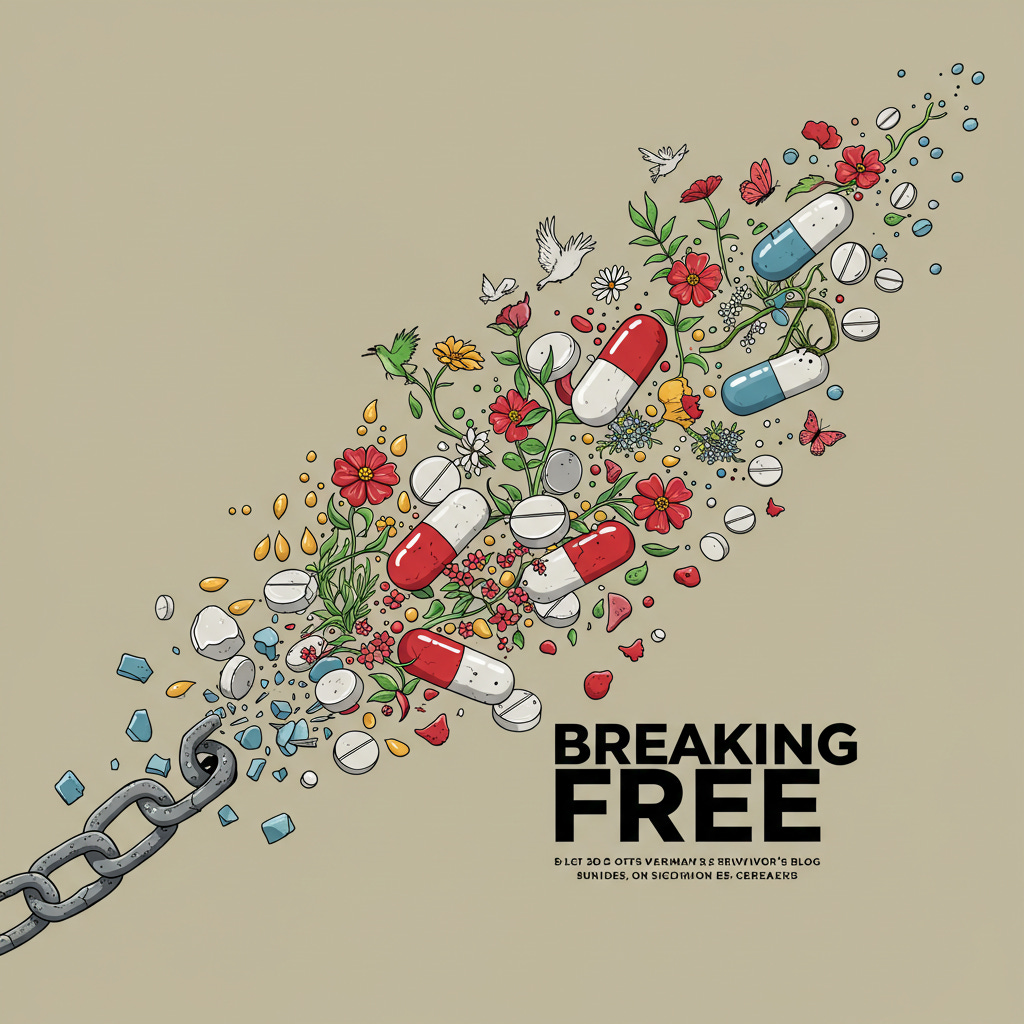
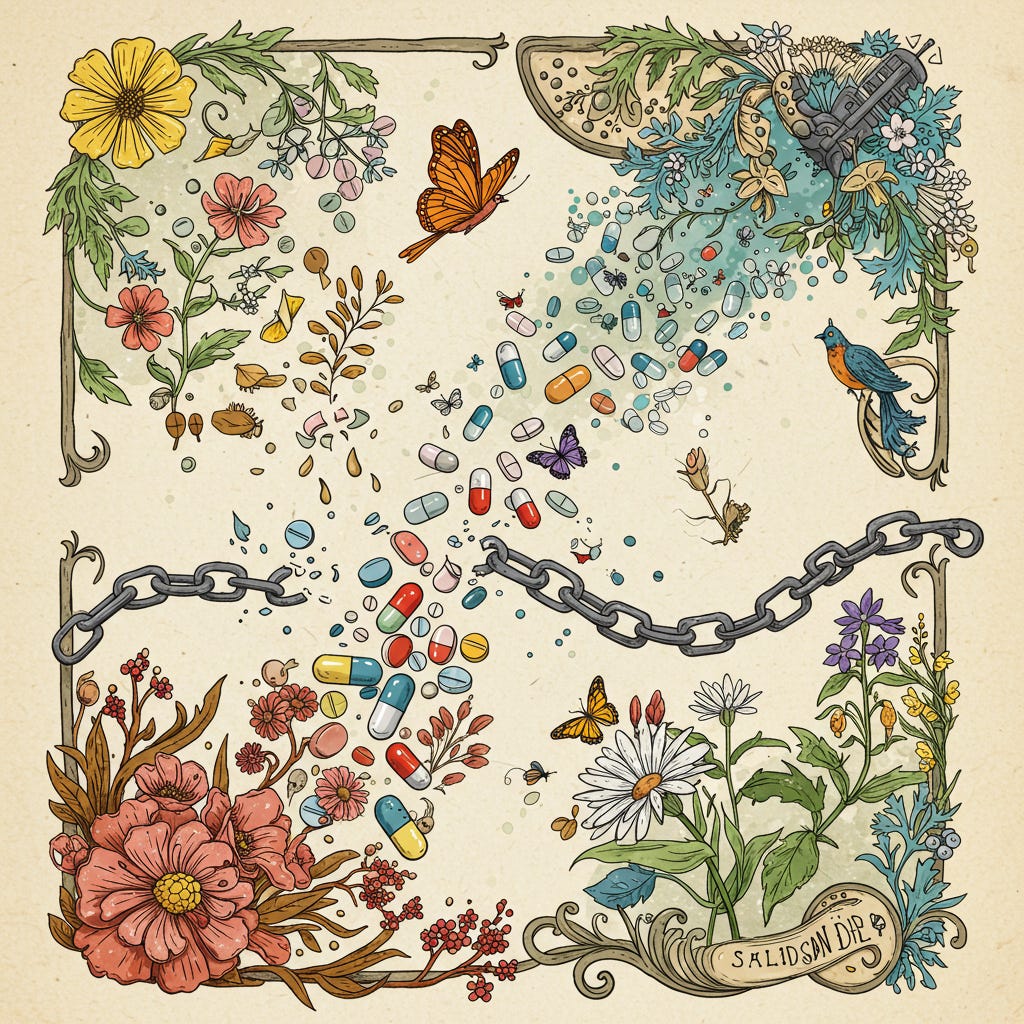
Hi. Im 35, cis female. At age 12 I was put on fluoxetine, it didnt work they said, many drugs later with either bad side effects or not working, By the age of 15 I was termed “treatment resistant” and given ECT. which didnt work either. More drugs. At age 30 I was finally diagnosed as Autistic. Ive been on welfare my whole adult life. Im in new zealand. Your story is alot like mine.
Im currently on lamotrigine and venlafaxine. Have struggled for years to get off but the withdrawals are brutal and im scared that it will be misinterpreted as mental illness when its because of the withdrawal, i know of others trying to get off venlafaxine having psychotic episodes due to the withdrawal not any mental illness they dont have.
Thank you, Chris!